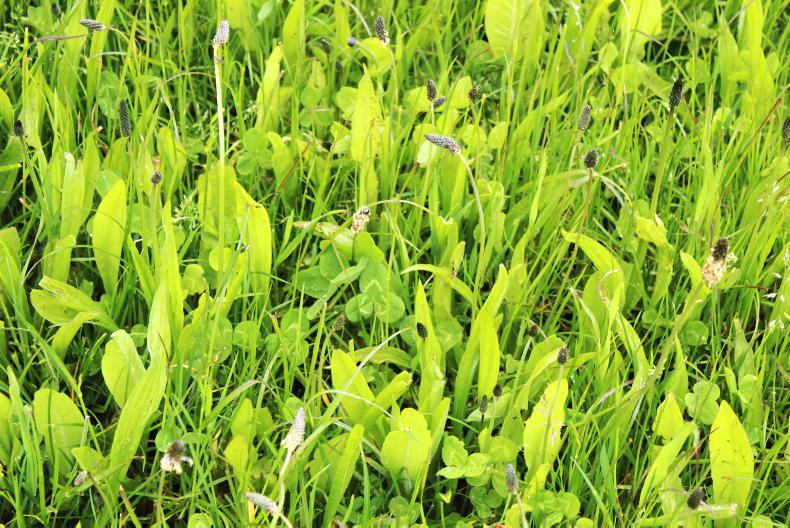Farmers can claim up to €300/ha for establishing multi-species or red clover silage swards under schemes opened on Wednesday.
Payment rates under the 2023 Multi Species Sward and Red Clover Silage measures represent more than a doubling of those paid out under the two schemes’ pilots, run last year at €50/one-acre bag (or around €125/ha).
However, 2023’s payment rates could be reduced if the number of applications exceeds the allocated budget at €300/ha, terms and conditions posted to the Department’s website state.
Seed can only be bought after a farmer or their adviser lodges an application on their agfood.ie under Multi Species Sward and Red Clover Silage Measure to receive payment, but it is not necessary to declare areas to be sown at this application stage.
Lands entered into either measure must be entered under the correct crop type in 2023 Basic Income Support for Sustainability (BISS) applications before 29 May.
Conditions
Minimum seeding rates of 30kg/ha will apply and a minimum of six approved species must be included in swards established under the multi-species measure.
They must also be sown before 15 July and the sward “successfully established” before 30 September 2023, with a minimum area of 1ha and a maximum of 20ha to apply.
In this year’s scheme, payments will be paid directly to eligible farmers where previously, agri merchants were reimbursed for discounting the cost of seed.
Farmers who selected the Multi Species Sward eco-scheme are eligible to participate in the Multi Species Sward Measure, but only where the seed is sown in separate parcels to those selected in their eco-scheme application.
Commonage lands, Natura 2000 sites, Natural Heritage Area (NHA) designated land, environmentally sensitive permanent grassland and lands within archaeological monument buffer zones are among those excluded from both schemes.
Reducing fertiliser
Minister for Agriculture Charlie McConalogue heralded the scheme as an opportunity for farmers to cut back on chemical fertilisers at a time of high prices, announcing the scheme as the National Fodder and Food Security group is due to meet later this week.
He highlighted that the measures will help fund farmers in growing low-cost fodder and said the pilot scheme had proven successful in 2022.
“As part of the Government’s commitment to facilitating Irish farmers further improve the sustainability of Irish agriculture, I am delighted to announce the re-opening of these two measures which will expand the areas already established under last year’s pilot programmes,” the minister stated.
“I introduced the scheme last year to help farmers reduce their chemical fertiliser and it has proven to be successful.
“Funding has been increased to €2.5m to allow for greater support in establishing these swards.”
Government support
Increasing payments in the scheme shows Government’s support for farmers moving to more environmentally sustainable farming, according to Minister of State at the Department of Agriculture Pippa Hackett.
“I’ve seen first-hand on farms across the country how effective multispecies swards can be,” Minister Hackett said.
“These swards will have a positive impact on greenhouse gas emissions, biodiversity and water quality, while also providing a strong economic benefit to farmers.”
Minister of State Martin Heydon suggested that funding research in the agri-food sector allows Government to bring forward schemes to help farmers, such as the Multi Species Sward measure.
“The significant investment in research to date has shown the economic potential that multispecies swards offer farmers and will help give farmers confidence to embrace these newer sward types,” Minister Heydon commented.
“I encourage farmers to look at these measures and take advantage of the environmental and economic benefits they provide.”






 This is a subscriber-only article
This is a subscriber-only article











SHARING OPTIONS: